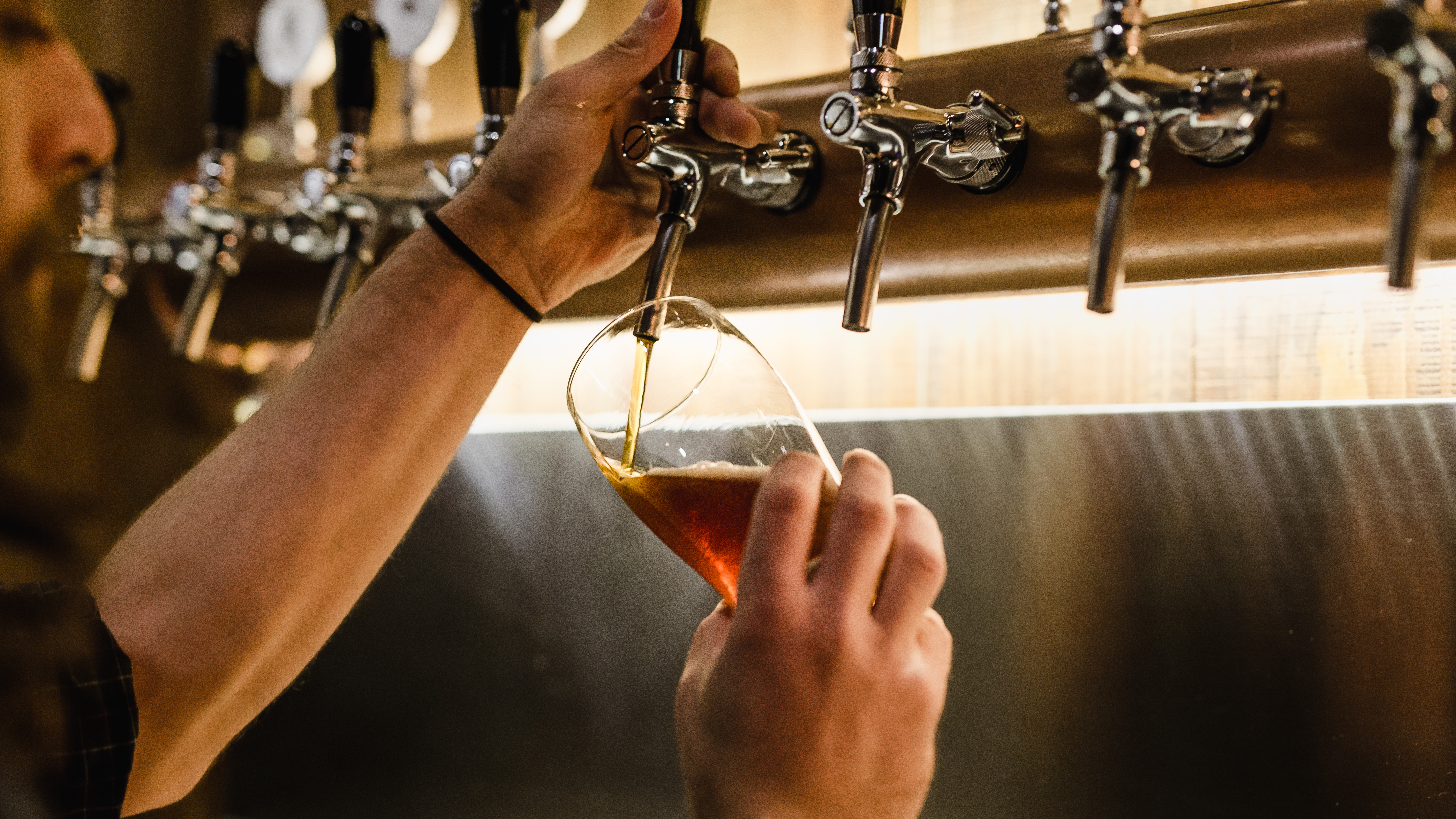Beer Brewed With Great Lakes Water May Contain Microplastics
University of Minnesota researchers recently found that not only are microplastics a part of water from the Great Lakes, the tiny contaminants are showing up in beer brewed with that water. Microplastics are small plastic pieces less than 5 millimeters in length—about the size of a sesame seed—according to the National Oceanic And Atmospheric Association.
They can come from beauty products like facial cleansers and toothpaste, as well as from synthetic clothing manufacturing. Minneapolis' KARE 11 reports they're now infiltrating beer that's brewed with water from the Great Lakes. Researchers found microplastics in all three Duluth-brewed beers they tested.
Brewers I talked to who also use water from the Great Lakes expressed concern over such contaminants, and say that's why they pay such close attention to filtration and water-treatment procedures at their breweries.
"Quite honestly, with microplastics, I sort of figured they'd be in the lakes and the raw water, but I didn't know that they actually found it in beer," Mark Hunger, brewmaster at Cleveland's Great Lakes Brewing Company, tells me. "But I guess all that's a possibility in this day and age, unfortunately."
Most breweries combat particulates in their water supply through filtration. Great Lakes Brewing uses both a cellulose and a carbon filter to remove small particulates and chlorine, as do other breweries. But even after municipal water treatment and at-the-brewery filtering, some say new contaminants like tiny microplastics are difficult to remove.
"Unfortunately there are so many new contaminants—especially pharmaceuticals are a big one right now—a lot of water systems don't even know really what to test for," Clint Bautz, owner of Chicago's Lake Effect Brewing, tells me. "The microplastics seems to be another example of that coming through. It's pretty scary. I mean, how do you test for that stuff?"
As a very small brewery, Lake Effect can't afford to test for every micro-contaminant that might be in its water. But breweries do pay very close attention to their water: not just its cleanliness, but its pH and chemical composition.
"Water is a huge part of beer, a huge part of the final product is water. You want a clean, stable, consistent supply of water which we honestly do have in Cleveland," Hunger says.
But microplastics and discarded pharmaceuticals pose new challenges for municipal water supplies and the brewers who use them.
"We do our own filtering, but when it comes to certain types of new contaminants, I don't even know that a filter could catch those," Bautz says. "A lot of water filtration systems are trying to play catch up with these contaminants."
Luckily, beer has some advantages over plain lake water when it comes to safety: Water is boiled in the process of becoming beer.
"Hundreds of years ago, beer was considered safer to drink than water," Hunger reminds me. "They didn't know why back then, but it's the fact that it's boiled and there's alcohol in it, so it was safer to drink than water. There's still some truth behind that, obviously."
But safe, clean water will never stop being a chief priority for many breweries around the Great Lakes. Both Lake Effect and Great Lakes Brewing have championed water and environmental initiatives as part of their businesses. It's not just the right thing to do, they say, but is crucial for ensuring great beer for decades to come.
"Water is everything to brewers and just to humans. You are what you drink," Bautz says. "Seventy-five percent of us, our bodies, is that water."
